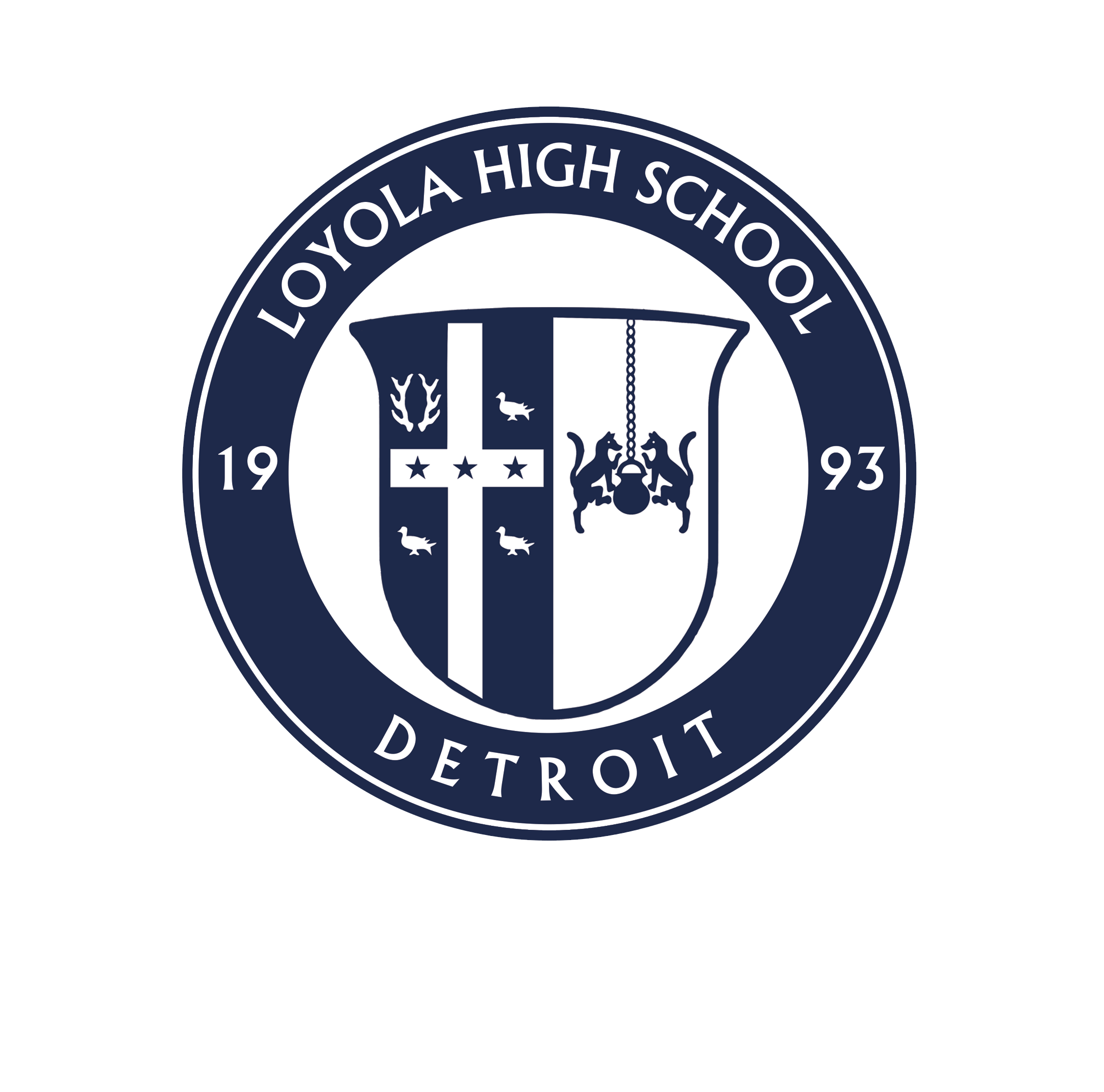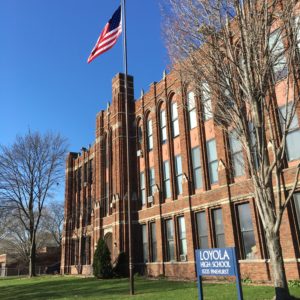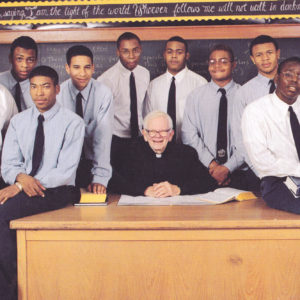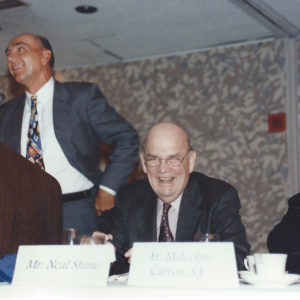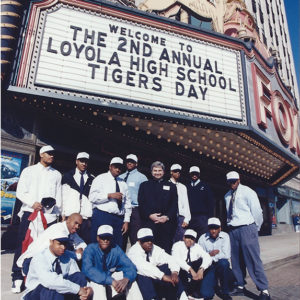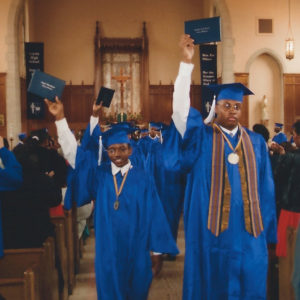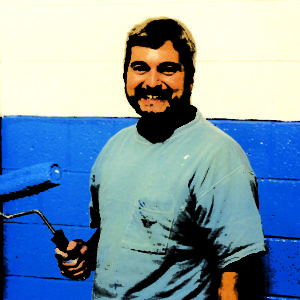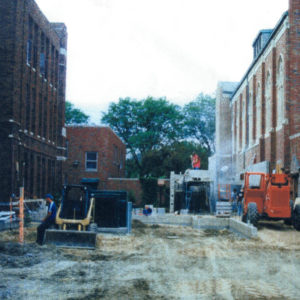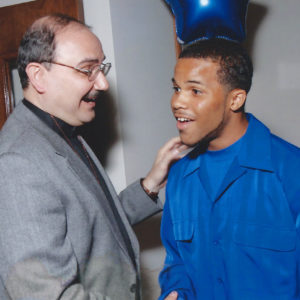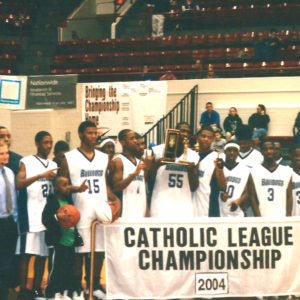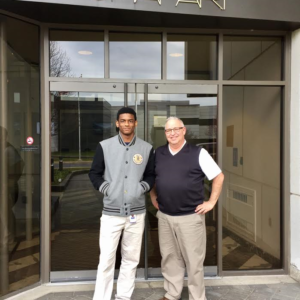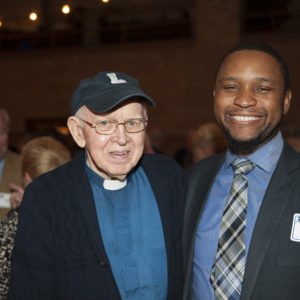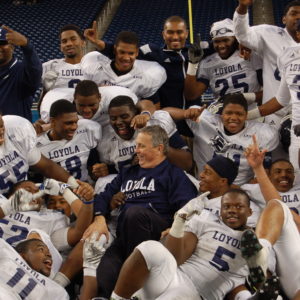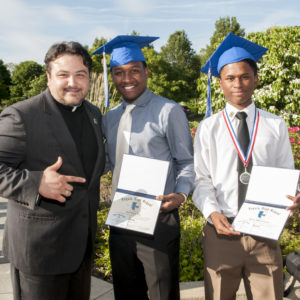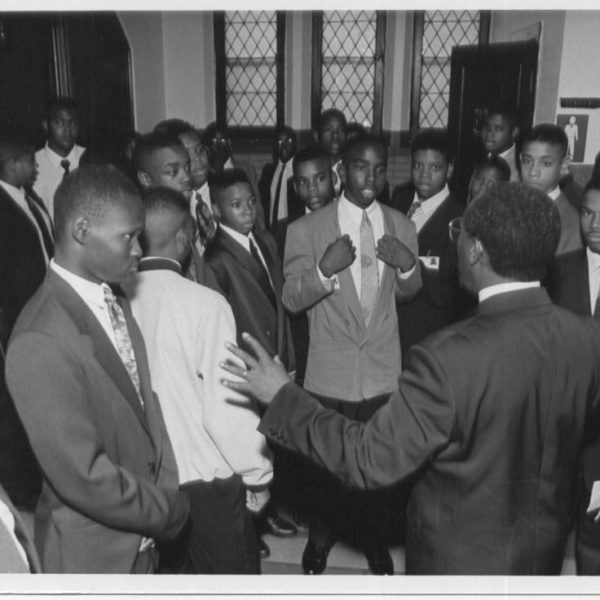
Our Heritage
Loyola High School is a joint venture between the Archdiocese of Detroit and the Jesuits of the USA Midwest Province. Loyola draws upon the experience and expertise of over 450 years of Jesuit education. The Loyola philosophy of education is essentially humanistic, i.e. to enhance and enrich the mind, heart, body, and spirit. Loyola seeks to graduate young men who are prepared for the next stage of formal education – college, university, or skilled trades program – and who will give back to the community as “Men for Others.”
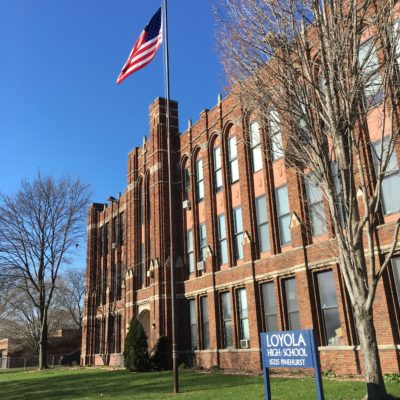
Our History
In the early 1990s, the Detroit Board of Education planned to open a series of all-male academies to address the very high dropout rate of males in the city. The state courts struck down this initiative, ruling that it violated Michigan’s constitution.
In response to the ruling, Detroit Archbishop Adam Maida and Jesuit provincial Fr. Joseph Daoust, SJ agreed to collaborate to open a high school with that very intent: address the needs of an under-served, marginalized male population in Detroit and its surrounding communities. In August 1993, Loyola Academy (as the school was first called until July, 1996) opened its doors to 43 young men in the basement wing of the former St. Francis Home for Boys, located at Fenkell and Linwood. Longtime Detroit educator and community icon, Fr. Malcolm Carron, SJ, served as President of this new venture.
One year later, the school moved two miles west on Fenkell, and over the next few years, it completely renovated the former St. Francis de Sales school, which had been virtually abandoned for over ten years. Even more impressive and important than restoring the building was the transformation that took place within its walls.
Adding one grade at a time, Loyola reached full, four-year enrollment in the 1996-97 school and on June 1, 1997, proudly graduated its first senior class. It was a joyous celebration as the community celebrated an important milestone in the lives of these young men, many of whom had never considered college prior to coming to Loyola and possibly would have dropped out of school before earning a diploma. Since then, Loyola has graduated 21 more classes of proud seniors. Loyola students leave well prepared to continue their education after graduation to colleges and universities. In fact, 100% of Loyola seniors have been accepted into a college or a university the past nine years!
An important addition to the Loyola curriculum was the Loyola Work Experience Program in 2003. In this program, students spend one day per week in the offices of our work partners gaining practical, real-world work experiences that will help them find success beyond their academic studies. Loyola currently has over twenty LWEP sponsors, including companies such as: Ford Motor Company, William H. Beaumont Health System, IHS Markit and DTE Energy. Loyola students acquire desirable job experience and marketable skills, develop a network of business contacts, refine a strong work ethic, and better understand the expectations of future employers.
Today
Now in its 26th year, Loyola has a proven track record of success. Through an extensive strategic planning process and other measures, we are determined to make our future more successful than our past and present. Come and see what Loyola has done to transform the lives of young men. They tell our story every day.
